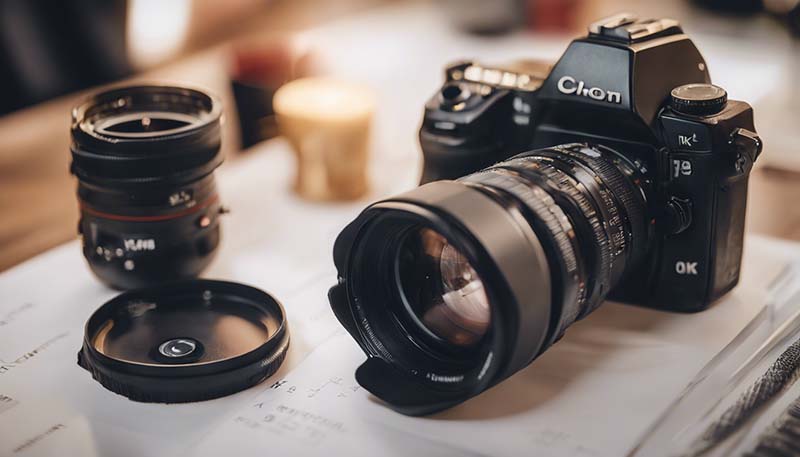Interview Preparation Made Simple
Landing a job is often the culmination of many factors, with the interview being the penultimate step in the process. Preparing for an interview can be a daunting task, but with a structured approach, it doesn't have to be. This article aims to simplify the interview preparation process by breaking it down into manageable steps that can help boost your confidence and improve your chances of success.
Understanding the Interview Process
Before delving into specifics, it's crucial to understand the typical structure of an interview. Interviews can vary widely depending on the industry, the company, and the role you're applying for. However, most interviews follow a general pattern:
- Introductions and small talk
- Behavioral and situational questions
- Technical or role-specific questions
- Questions about your experience and skills
- Your questions for the interviewer
Researching the Company
Knowing as much as you can about the company you're interviewing with is essential. This includes understanding the company's:
- Mission and values
- Products and services
- Market position and competitors
- Recent news and developments
- Company culture and work environment
Use the company's website, press releases, social media profiles, and news articles to gather this information. This research will not only help you answer questions but also allow you to ask informed questions at the end of the interview.
Advertisement
Identifying Key Roles and Expectations
For the specific role you're applying for, it's important to understand the key responsibilities and expectations. Review the job description carefully and identify the skills and experiences that are most relevant. Be prepared to discuss how your background aligns with these requirements.
Preparing for Common Interview Questions
Some questions are asked in nearly every interview. Be ready to answer the following:
- Tell me about yourself.
- What are your strengths and weaknesses?
- Why do you want to work for our company?
- Why should we hire you?
- Where do you see yourself in five years?
Practice your answers to these questions, but avoid memorized, robotic responses. Be natural and conversational.
Handling Behavioral and Situational Questions
Employers often use behavioral and situational questions to assess how you might handle certain scenarios in the workplace. The STAR method (Situation, Task, Action, Result) is a popular way to structure your responses:
- Situation: Describe the context of the situation you faced.
- Task: Explain the task or challenge at hand.
- Action: Detail the actions you took to address the situation.
- Result: Share the outcome of your actions and what you learned.
Preparing for Technical Questions
If you're applying for a technical role, you can expect to face questions related to your field of expertise. Review key concepts, tools, and technologies relevant to the job. Practice explaining complex ideas in simple terms and be ready to discuss your problem-solving approach.
Bringing Your Experience to Life
During the interview, you'll have the opportunity to discuss your past experiences. Be prepared to provide concrete examples that demonstrate your achievements, particularly those that are relevant to the role you're applying for.
Preparing Questions for the Interviewer
Having questions to ask at the end of the interview shows your interest in the role and the company. Prepare a mix of questions about the company, the team, and the role itself. Avoid asking questions that can be easily answered with a quick online search.
Practicing, Practicing, Practicing
Practice makes perfect. Conduct mock interviews with friends, family, or mentors. You can also practice in front of a mirror or record yourself to review your body language and tone. The more you practice, the more comfortable you'll become.
Preparing Your Materials
Gather all the necessary materials you'll need for the interview, such as:
- Multiple copies of your resume
- A list of references
- Portfolio or examples of your work (if applicable)
- Any certifications or awards that support your application
Dressing for Success
Choose professional attire that fits the company culture. When in doubt, it's better to be slightly overdressed than underdressed. Ensure your clothes are clean and well-pressed.

Mind Your Body Language
Non-verbal communication plays a significant role in interviews. Maintain eye contact, offer a firm handshake, sit up straight, and avoid fidgeting. Your body language should convey confidence and interest.
Staying Positive and Resilient
Job hunting can be a rollercoaster of emotions, and面试 (interviews) are no exception. Stay positive, and don't let rejections discourage you. Each interview is a learning experience that brings you one step closer to the right opportunity.
Following Up After the Interview
Send a thank-you note or email within 24 hours of the interview. Express your gratitude for the opportunity, reiterate your interest in the position, and mention any key points from the interview that you believe make you a strong candidate.
Continuing Your Professional Development
Even as you're interviewing, continue to invest in your professional development. Attend workshops, network with professionals in your field, and stay current with industry trends. This not only makes you a more competitive candidate but also prepares you for future roles.
Conclusion
Interview preparation is a multifaceted process that requires research, practice, and attention to detail. By breaking the process down into these simple steps, you can build a strong foundation for success. Remember, every interview is an opportunity to learn and improve. Good luck!
Comment